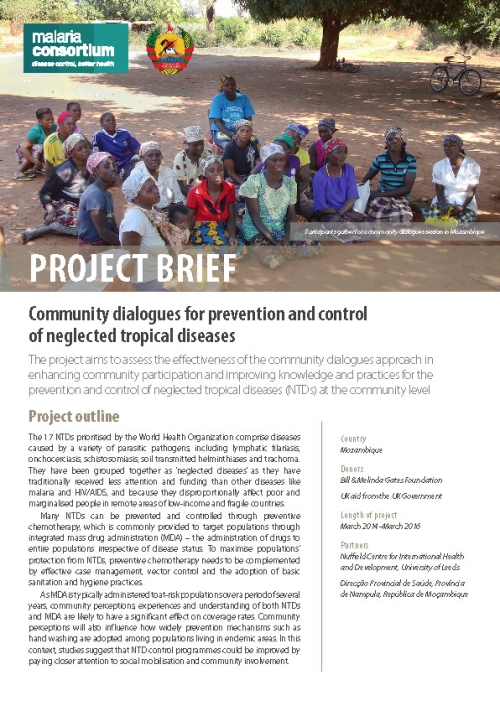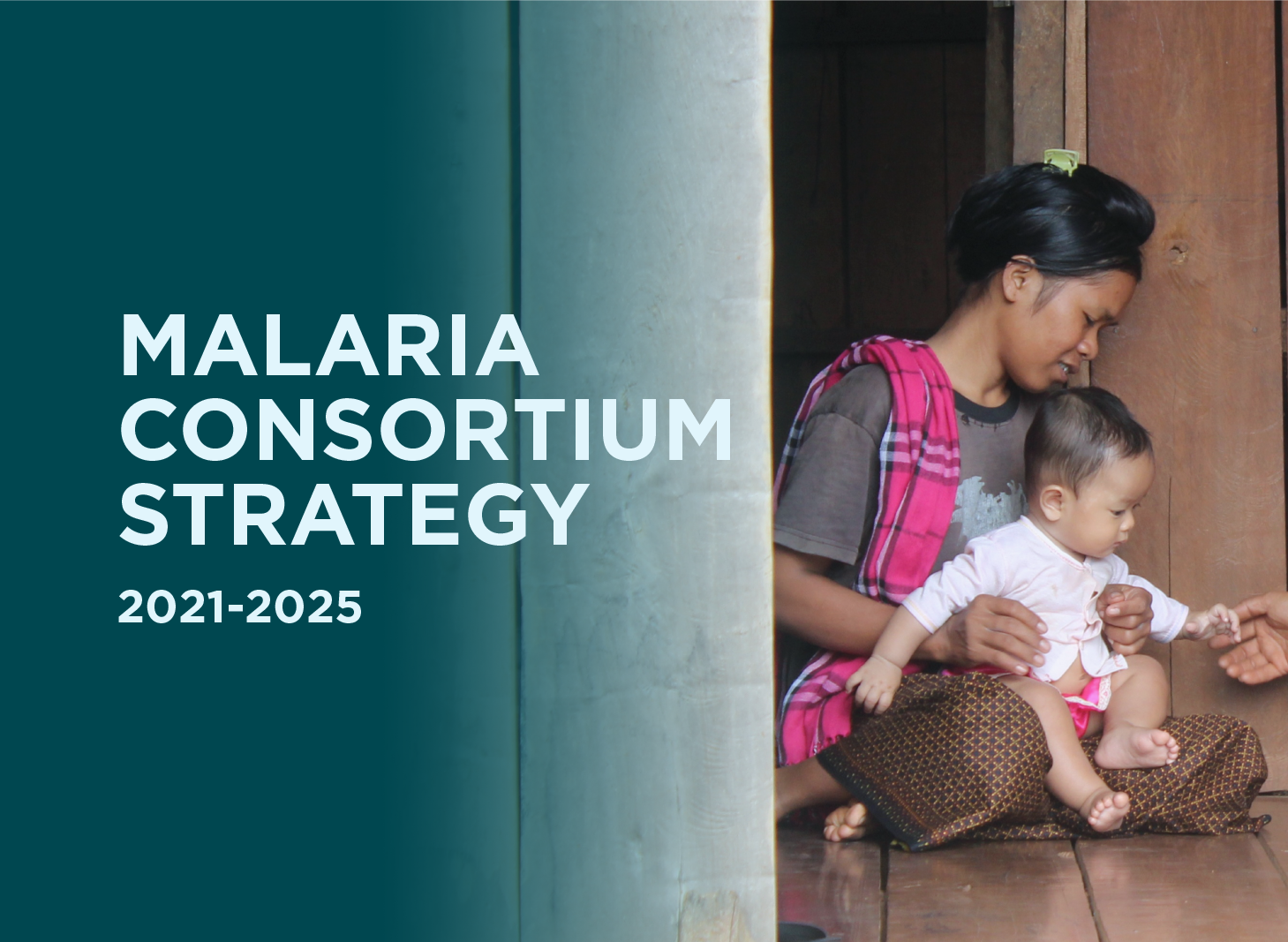Project
Applying community dialogues to facilitate community-lead initiatives in Nampula province, Mozambique
Community based identification of patients and home management poses one of the greatest challenges to efforts to support those suffering from lymphatic filariasis. Currently, there is no system in place in Mozambique to systematically identify and provide adequate care for lymphatic filariasis patients. This calls for identifying feasible, durable and affordable solutions at community level that the Ministry of Health could implement and sustain.
The community dialogues approach is a form of social mobilisation which Malaria Consortium is using to improve knowledge, attitude and practices at the community level and to foster community ownership of health issues. A unique community dialogue model was designed by Malaria Consortium and tested in the context of NTDs in Mozambique, in a few districts of the northern province of Nampula.
The project is planned to take place during 9 months in two districts of the province of Nampula, where already Community Dialogues Facilitators (CDFs) were trained by Malaria Consortium. The project objectives are to:
1. To improve knowledge and attitudes with regard to LF at the community level
2. To identify patients and refer them to health services
3. To encourage local solutions for the community-based management of patients with lymphoedema
4. To collect community perceptions around LF and possible stigma associated with LF related disability
Back


